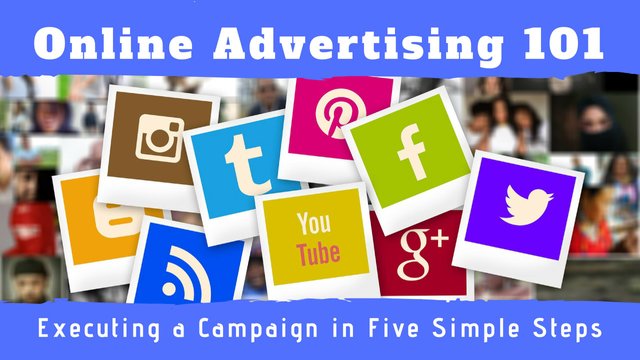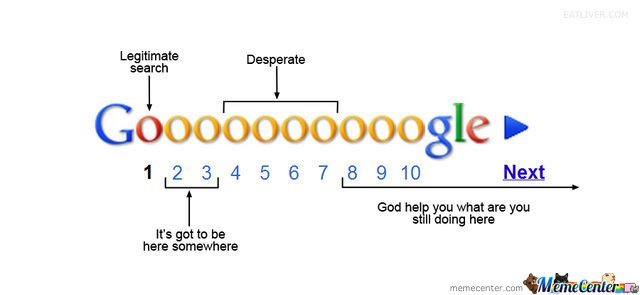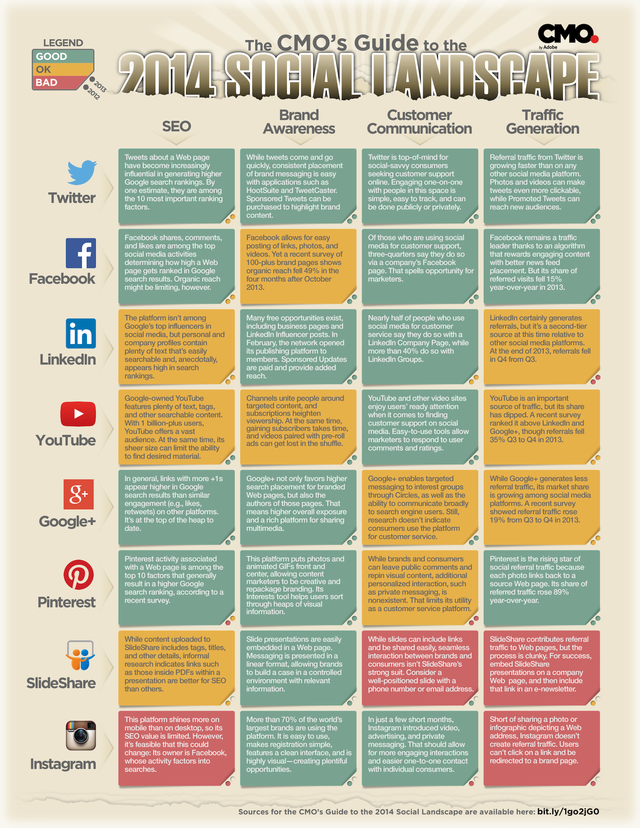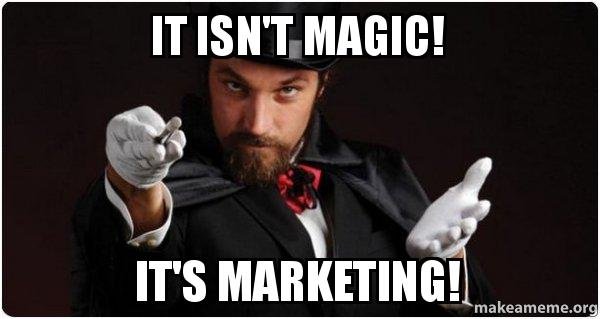Advertising 101: Executing a Campaign in Five Simple Steps
With the Visibility category on @utopian-io back to life, I am swamped with questions and requests for guidance in my Discord DMs. Since there's only one me, and many of you, I decided to write a quick guide to getting started in creating an online ad campaign.
This post was supposed to appear somewhere along my Open Source Marketing series, but it became obvious it's needed now. The steps explained can help Open Source project owners run their own campaigns by simply following them and referring plenty to external materials.
0. Use Google Search
This may sound obvious (which is why I don't consider it one of the five steps), but Google is an advertiser's best friend. Google has everything. From best practice guides for whatever channel you choose, to invaluable information about the product you're promoting and its competition.
1. Understand The Product
Trying to sell the proverbial cat in the bag is much harder and more time-consuming than making the effort to truly understand the product or service promoted. What does it do? When is it useful? What technical specification and demands does it have? What does the competition look like? What are the strengths and weaknesses of the product?Take the time to use the solution you are promoting, read the documentation and don't forget to learn from past campaigns by brand or its competitors.
While this may seem like an unnecessary step for OSS project owners who supposedly know their product better than anyone, it is often not the case. Developers tend to look at their prized creation from a very different perspective than the user, so planning an ad campaign is a great oportunity for them to take a step back to get a different view of their product.
But that's a topic for another post.
2. Understand The Audience
Mass advertising doesn't work. It is ineffective, wasteful and often has an opposite effect to the desired. For example, paying top dollar for a banner on the New York Times website to advertise Steemit will have lower impact than well coordinated and targeted advertising of the platform across social media channels.
Targeting is the key word. Imagine the "perfect" user for the solution you've understood fully in step one. Who are they? Where do they live? What devices do they use? What language do they speak? How old are they, and what are their interests?
There are thousands more questions you can ask in your quest to imagine the ideal consumer for the product you are promoting. One of the things you should be able to deduct from these variables is the channel for advertising - where these ideas users hang out.
3. Select a Channel
The stage on which you (pay to) present the product you're promoting is usually chosen according to the type of product and its target audience. For example, you won't have much luck finding users for privacy-oriented services on Facebook, or reaching out to an audience of seniors on Reddit.
Another thing to note is the convenience of the selected platform in said promotion. Facebook tends to be difficult in allowing for the promotion of mobile apps, while Google can be terribly confusing and complicated to set up when targeting very specific segments.
4. Create Your Message
Copywriting is an art that creates memorable ads that drive action. The goal of the words, graphics and even format of your ad should speak clearly and directly to the target audience you defined. Invite them to engage, click, download, install, register and do whatever it is your campaign goal is.
It's always good practice to avoid putting all your advertising eggs in one basket. This is why I prefer to use multiple ad copy options and A/B test the life out of them.
5. Optimize & Have Fun
If you think that once you click "publish" on you campaign your work is over, I have news for you. To ensure your campaign performs within budget and exceeds your goals, you need to constantly optimize and adjust. Not enough clicks? Raise the CPC a bit and check what happens. One of your ads is getting much lower CTRs than others? Kill it with fire and take note of what it might be about it that put people off from clicking.
Online advertising platforms are constantly evolving and changing, but the basic workflow of execution is still the same as it's been for close to a decade. Targeting may have become more granular and scalable, reporting is more insightful, and it's much easier to track, understand and customize the funnel. However, these simple steps remain the same, just include different tools and techniques in addition to good old trusty Google.
-=-=-=-
Thinking of contributing to Open Source? Read Contributing to Open Source - Getting Started and Finding Inspiration






Great article.
I think it's important to note, that even since 2014 (and the CMO overview of social platforms graphic) the social landscape has shifted and evolved considerably.
Today, users of most, if not all platforms can smell BS/"advertising" a mile away. And there's little value in being seen by thousands/millions of people, but being seen to be trying to trick, or manipulate them - which is what most traditional advertising has tried to do.
Users today respond to authenticity and brands they perceive to care. We want to align ourselves with people, and brands who believe in something we do.
There are still a lot of advertisers who miss this point - and that's why many of the biggest brands in the world will continue to fall by the wayside. Because they don't understand how the [online] world has changed.
IMO, building a brand, and marketing will always out-perform "advertising", because people will feel more of a connection.
If you give them something they value, not try to extract something you value, the fans you win will turn into the sales/actions you need to run a business.
Oh not again! Does the steps need to be form of a lecture with 101, 102, 201 😀😀😀
Sorry it was my fault you had to start a class on this, probably open an OS lecture, but it's really helpful for the visibility cat :-D
I'm a computer engineering student.
And, we actually talked about this in the last topic on the last lecture last week.
We didn't get into the detail, because we're focused on devoloping a site.
So, this actually is pretty useful, as I intend to do this in my future.
Thank you, @techslut. Your article convinced me to reopen some of these channels again, such as Youtube and 'yan' ok Instagram. -_- I have been using only Steemit and other decentralized social media. Facebook though I might keep on boycotting for the rest of my life. Oh, and I'll create a Twitter too. Thanks!
It is magic.
twas a good read :)
Google does not show me what I want to see. When I try to find a special website, it gives me a different website instead. I may find what I'm looking for maybe if I scroll down but they show some other things at the top. That is why I use http://DuckDuckGo.com and other alternatives because Alphabet banned me off YouTube and I was removed off Twitter and Facebook too many times. I like the ideas of promotion on the ghetto social networks but it is tough when people are banned from those websites. Thousands of people are banned from those places. Not only me.
Reddit?
your cookied Joey, try the incognito window of your browser, even using a proxy/vpn will help for bias on location
Facebook has censored me. The problem is that, mostly. Yes, cookies is another matter as well. I have used Firefox. The corporate social networks is rooted in a few places and that is my focus, is on the roots and not on all of the branches including the cookies.
very good article :)
@techslut I like Your writing, nodding my head a lot refreshing see someone who gets digital marketing. tell me Open Source Marketing series ? where ? will look into your other articles now, thanks, Nic (NTC) from Amsterdam